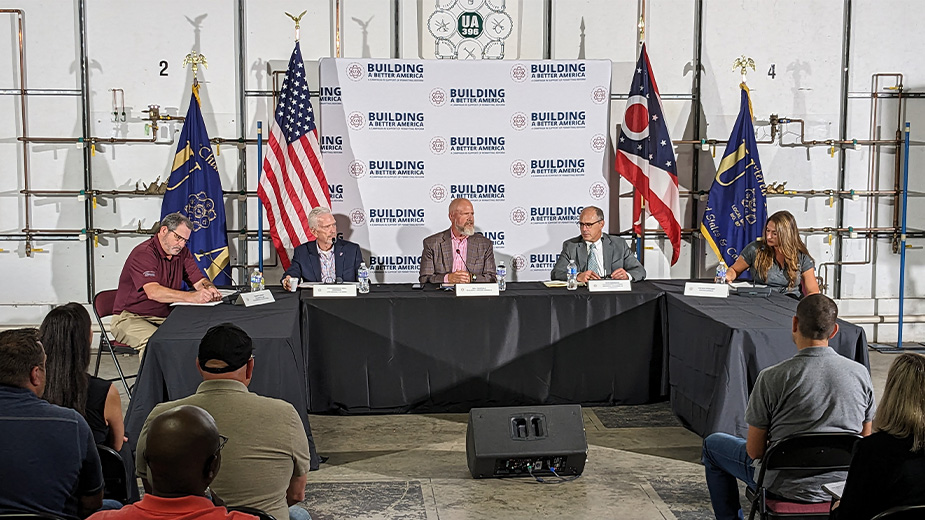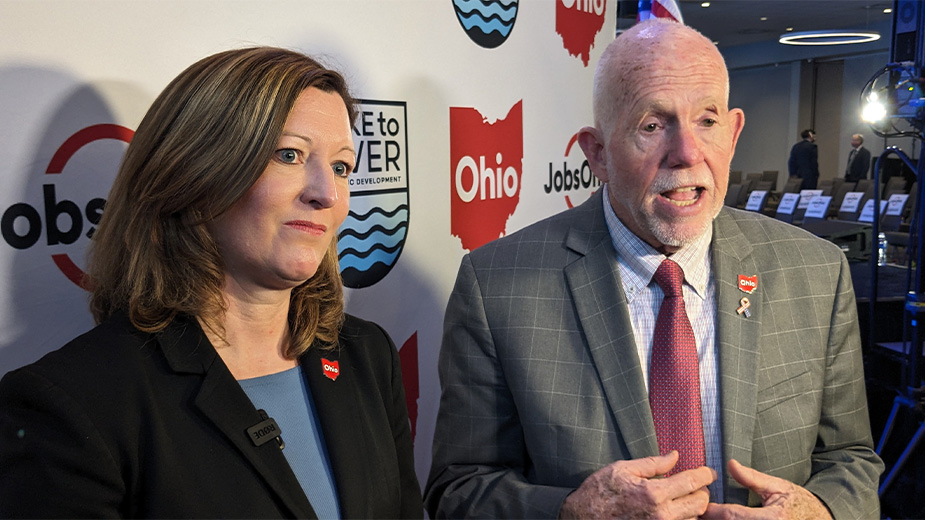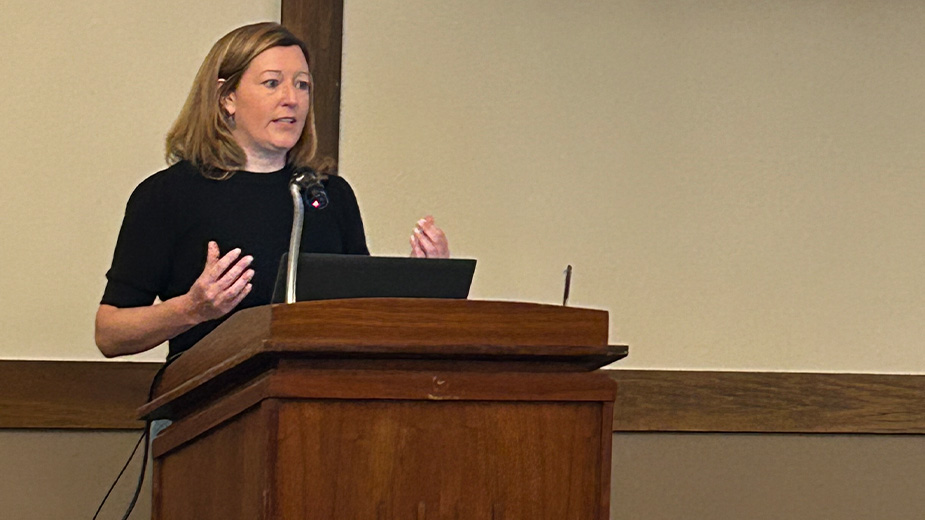Panel Pushes Need for Changes to Permitting Process
BOARDMAN, Ohio – Ohio is poised for development, but an outdated permitting process slows progress and stymies economic growth, according to representatives from labor and industry and a local congressman.
The nonprofit, bipartisan Building a Better America Coalition staged a panel discussion Tuesday to talk about the need for reform in the process to secure permits that allow businesses to build and make improvements.
“We all agree – the left or right, conservative or liberal, East Coast or West Coast – that we need to build airports; we need to build roads; we need to build bridges; we need to build pipelines,” said Bill Koetzle, a senior adviser to Building a Better America. “We need to build pretty much anything you can think of in this country. But right now, all of these projects are being hampered by an outdated, inefficient and often inconclusive permitting process.”
The permitting process in the United States is a significant barrier to making progress, he said.
On average, it takes four and a half years to secure a federal permit, and it can take as long as eight years, Koetzle said, and then it often gets mired in litigation.
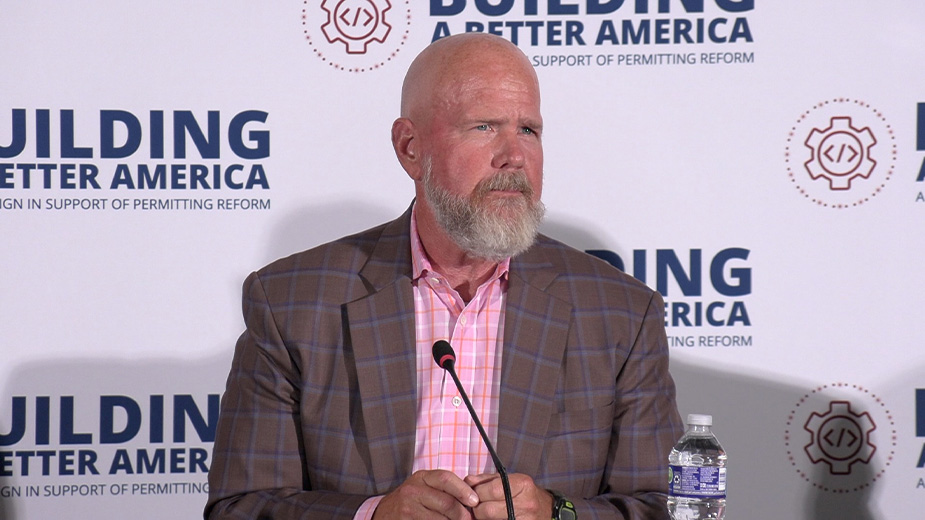
Building a Better America organized the discussion at the UA 396 HVAC Training Center with panelists U.S. Rep. Bill Johnson of Marietta, R-6th; Marty Loney, business manager of Plumbers and Pipefitters UA 396; Guy Coviello, president and CEO of the Youngstown/Warren Regional Chamber; and Jackie Stewart, director of external affairs for Encino Energy.
The panelists all agreed that the permitting process needs common-sense reform.
Johnson, a member of Congress’ Energy and Commerce Committee, said often the longest and most complicated part of a project is getting the permits in place.
The work the Energy and Commerce Committee has been doing during this congressional session is right in the bullseye of permit reform, Johnson said.
“If we don’t break the logjam in this permitting process, we’re going to continue to fall behind, and we’re going to fall victim to nations like China,” he said. “They don’t have a permitting process. They just do. We’ve got to figure out how to do while being responsible about it. We can do that. We can walk and chew gum at the same time.”
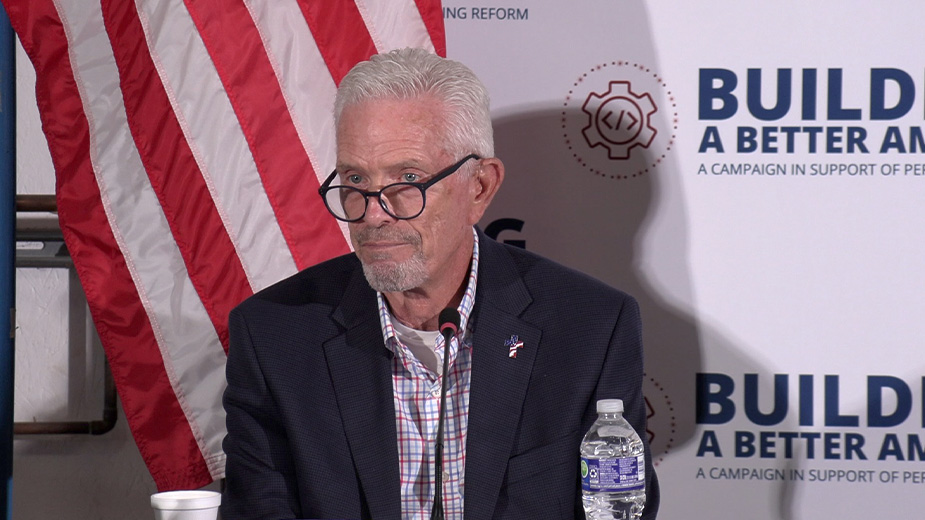
Johnson said there are leaders in the Senate and the administration though who won’t go along with changes to the permitting system because they don’t believe the country should be using fossil fuels.
He disagrees.
“We can be good stewards and still have the greatest economy on the planet,” he said.
Businesses can’t afford to keep money tied up in investments while the permits slog through required processes, Johnson said.
“It shouldn’t be this way. It doesn’t need to be this way,” the congressman said.
Loney says it’s not a political issue.
“This is a bipartisan issue,” he said. “This isn’t Republican. This isn’t Democrat. This is about putting people to work.”
The average four-and-a-half-year time frame it takes to secure permits is the length of an apprenticeship, he said. That means a first-year apprentice learns about proposed projects coming to the area but completes his or her whole apprenticeship before they have the opportunity to work on them.
“This is something that’s sorely needed,” Loney said. “But to be clear, this doesn’t mean that the permitting reform weakens the standards. It shouldn’t weaken the standards. It makes it better.”
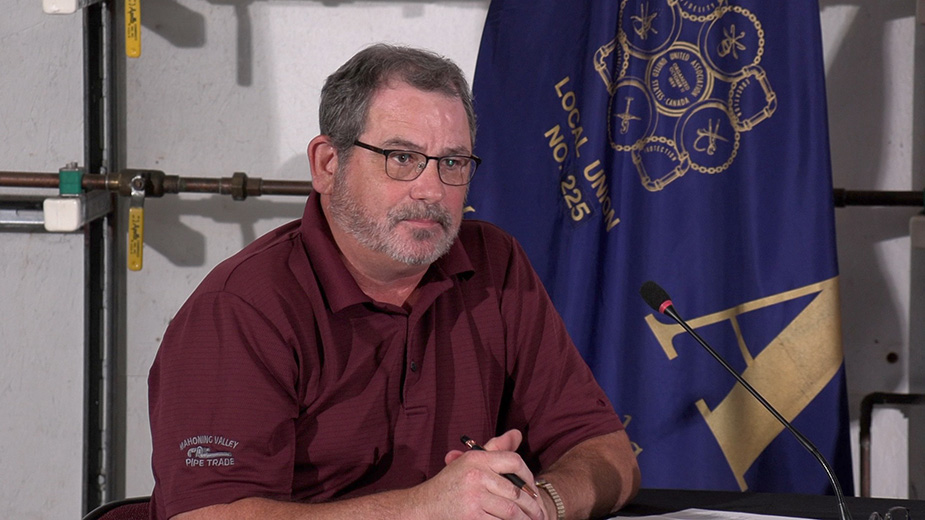
Loney also talked about the need for more skilled workers in the Mahoning Valley.
“We’re not going to apprentice our way out of this,” he said.
The unions have a lot of training facilities in the area.
“What we have to look at is, how do we train people to work safely, to be able to live in the Valley, to keep their tax dollars here so that we can continue to support the shops and the stores and the gyms and restaurants here in the Valley?” Loney said. “We have to start looking at expanding what we’re doing.”
Baby boomers are retiring, and young people of this generation didn’t have wood and metal shops when they were in school, he said.
“We have to start identifying folks younger so that we can fill the void of what we’re looking at now,” Loney said.
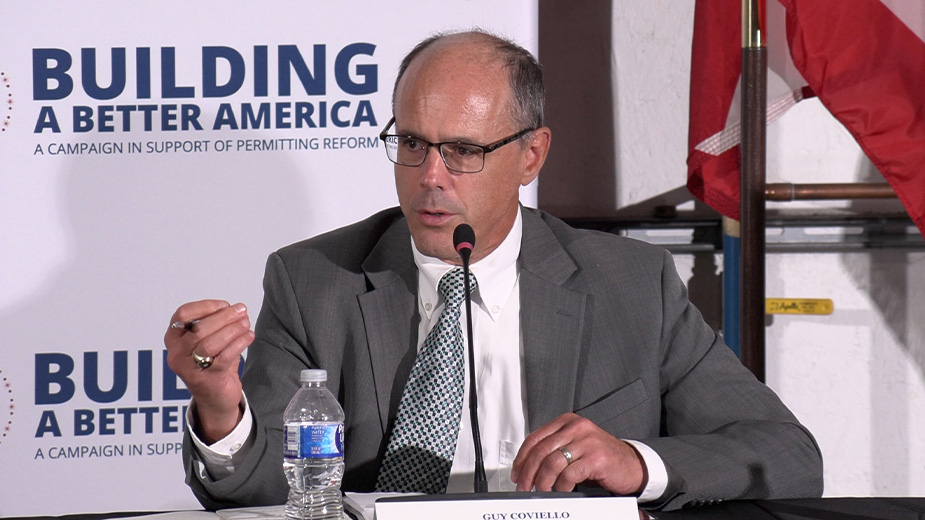
Coviello said the need for permitting reform is felt locally. It’s not just about large manufacturing facilities.
“Let’s not forget that there are many small, family-owned manufacturing operations that are simply trying to withstand, and that permitting process can be very costly for them, and it can change the entire makeup of their ability to grow the local economy,” he said.
Stewart, of Encino Energy, said permitting reform means not only the ability to create new jobs but to maintain existing ones.
Encino, headquartered in Houston, operates the Utica Shale in Ohio and is the state’s largest oil producer and second largest natural gas producer. The company has invested billions in Ohio.
To do more of that though, more bipartisanship leadership in Washington, D.C., and a comprehensive energy policy at the federal and state levels are necessary, Stewart said.
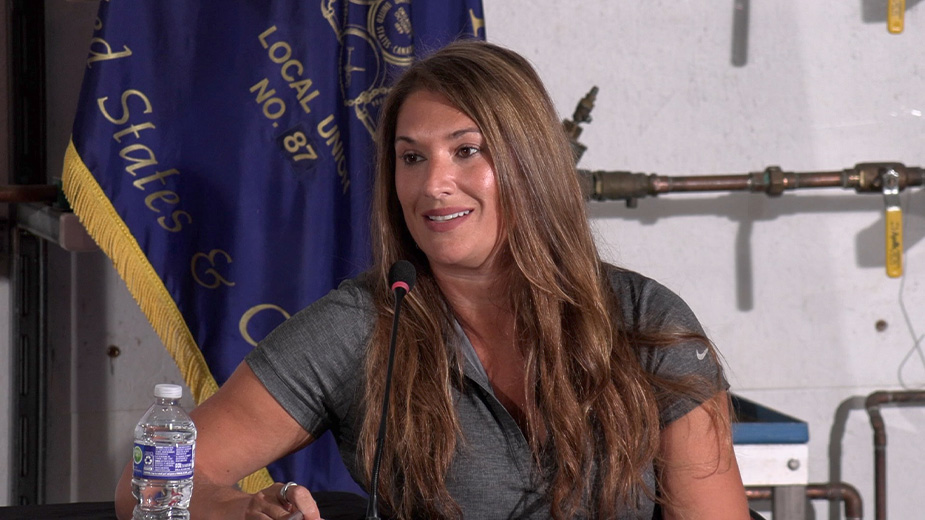
“The local impact to our regional jobs is not hundreds of jobs. It’s hundreds of thousands of jobs in the state,” she said.
The panelists talked about the Intel chip factories slated to be built near Columbus and all of the companies that could grow or start in the state because of that.
“We can’t do this without having some of these permits coming out,” Loney said. “Investors won’t wait that long. Interest rates, inflation, all of that stuff comes into play here.”
Investors will walk away, and that means fewer jobs and less money in the economy, he said.
Pictured at top: From left are Marty Loney, U.S. Rep. Bill Johnson, Bill Koetzle, Guy Coviello and Jackie Stewart.
Copyright 2024 The Business Journal, Youngstown, Ohio.
